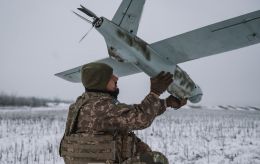'I envy those who think war will end soon': Ukrainian defenders' paths from 2014 till present
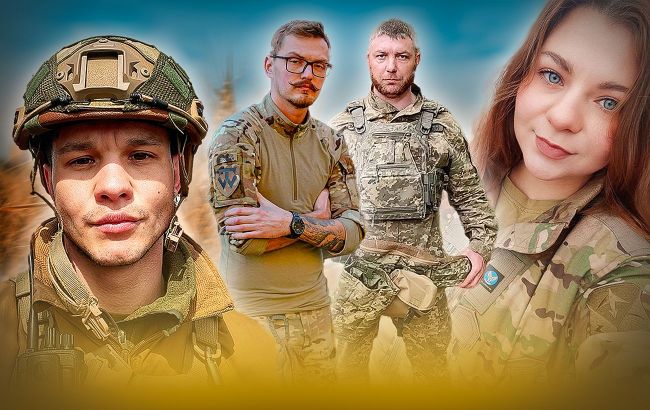 Ukrainian soldiers shared stories from the front line (collage: RBC-Ukraine)
Ukrainian soldiers shared stories from the front line (collage: RBC-Ukraine)
On October 1, Ukraine honors those who bear the heaviest burden of war every day, who risk their lives and health for freedom, or who have already given their lives in the fight against Russia. Today, over 880,000 Ukrainians serve in the Armed Forces, and nearly 1.3 million more have veteran status. Each of their stories is about courage, pain, and devotion to their homeland.
For Ukraine Defender's Day, RBC-Ukraine has collected stories of military personnel who embody the strength and courage of the Ukrainian people in the fight against Russian invaders.
From ATO to full-scale war. Story of combat medic who has spent 9 years at war
Combat medic Anna Prodan, call sign Kropyva, has spent almost 9 years on the front lines. During the ATO, she served in Verkhnotoretske, and during the full-scale war, she was deployed in Bakhmut, the Serebryanskyi Forest, and Kurakhove. Now she is in the Kharkiv direction.
"I never counted my casualties. Saving lives sounds very grand. Of course, first aid is an important step, because people can die from blood loss or not knowing what to do. But saving lives is a long chain: first aid, evacuation, stabilization point, hospital," says the combat medic.
_1.jpg) Anna Prodan joined the army at the age of 19 (photo provided by Anna Prodan)
Anna Prodan joined the army at the age of 19 (photo provided by Anna Prodan)
Below is Anna's direct quote.
I joined the army in 2016, shortly after graduating from medical school. I was 19 years old, and I didn't think much about where I was going or why. At that time, civilians didn't know what war was; they only saw it on TV. I found out that a medic was needed in a military unit, so I decided to go.
When I first arrived at the front, people were motivated. Everyone went there with patriotism; they were friendly and united. There was an understanding that we had an enemy. I just don't know how you can stay out of the war if you have skills and can be useful.
I served in the 58th Brigade. My call sign was given to me by the company commander back in 2016. He said that I was very compassionate but useful, and that they couldn't do without me. When I returned from the Anti-Terrorist Operation (ATO) zone on leave for the first time in 6 months, my mother looked at me and said that this was my calling, that I had found my place.
I am a combat medic in a company, stationed with the unit directly at the front line. I provide first aid to the wounded, then the evacuation arrives, and I hand over the 300th to them, while I remain behind. I go on duty for a week or two, sometimes I have to stay for a month because the situation does not allow me to change and leave.
Here, medics face the same threats as everyone else. It's hard to be under constant fire, but the hardest thing is losing people, because everything else can be physically and mentally pulled through.
I remember my first casualties. There was mortar fire, and three guys were hit by shrapnel. One was in severe condition: pneumothorax, concussion, and internal organs damaged by the shock wave. I helped everyone, but later the most seriously injured died in the hospital. When you see a wounded person, you do everything you need to do, and only then can you sit down and somehow digest it.
Those with minor injuries return to duty. Unfortunately, many of those I helped are no longer with us. The severely wounded are discharged. We keep in touch, sometimes they ask about my life, but we hardly ever meet in the field. The guys are very grateful for my help.
In almost nine years of service, I have had two breaks of about five months between contracts. When I gave birth to my daughter, I took three months' leave. The child stayed with my mother. My daughter is now almost 8 years old. She seems to understand my service and often says that she wants to be a combat medic herself. But at times she misses me very much and wants me to come home. I am now in the process of leaving the service because I am very tired.
Before the full-scale war, my contract ended, and I was no longer serving. On February 24, 2022, I gathered my things and went to the military registration and enlistment office. I wanted to join my unit, but they were already near Konotop, and it was impossible to get there—the Russians were nearby. But in the end, I did manage to join my brigade.
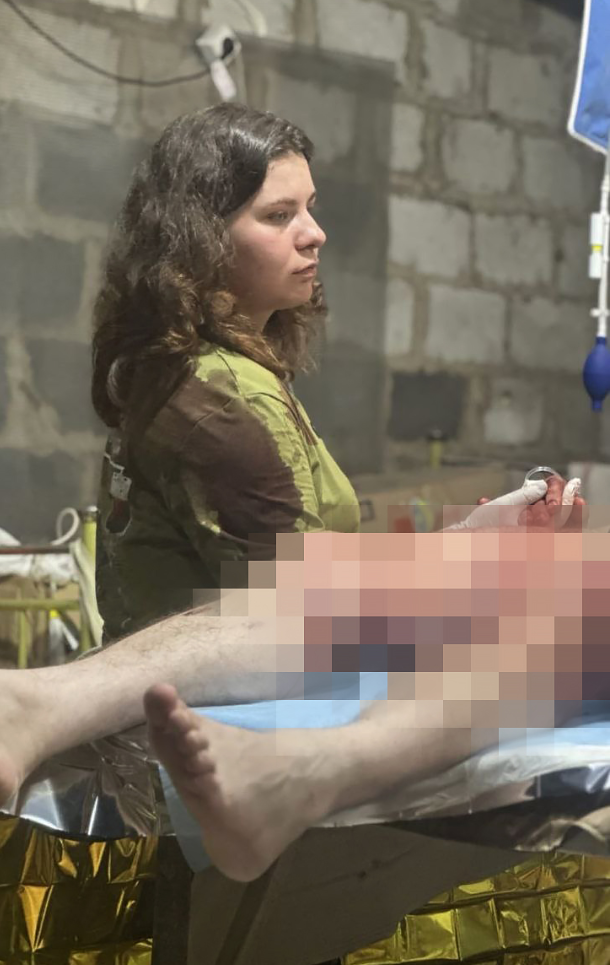
Anna and her brigade passed through Bakhmut, Serebrianskyi Forest, Kurakhove, and the Kharkiv region during the full-scale war (photo provided by Anna Prodan)
The war has been going on for so many years, but many people still aren't used to seeing girls on the front lines. Recently, here in the Kharkiv direction, some of our allies' guys were wounded, and they didn't have a medic. I came to help, and they were shocked that a girl from another company had come running: what was I doing on the front lines? Luckily, there was good greenery (wooded area, – ed.), so in these conditions I was able not only to help, but even to set up an IV.
It can be difficult for women in civilian life, and even more so in the military: working conditions, specific schedules, and various moral situations. But you joined the service, you understood what you were doing, and knew where you were going. You understand that it's hard for the guys, and if you're a burden, then who needs that kind of help? I think it's also difficult for women in rear positions.
In the early years of the ATO, women in the army were rare. When I joined, there were only 2 women in the battalion, then three medics and a clerk appeared. Now there are many more women.
Discrimination in the army does occur, but it depends more on the commanders. Girls have to constantly prove that they can work just as hard as the boys. Yes, we are emotionally strong, but physically, we are inferior to men. Commanders have to take this into account.
Since 2014, there's been a question that's still relevant today—showing respect to defenders. The least civilians can do when they see a soldier is just say thank you. Nowadays, you rarely hear that. The gap between civilians and the military has gotten smaller, but it hasn't gone away.
At the time of revealing the interview, Anna had signed her discharge papers.
In trenches with insulin. Story of a volunteer drone operator who serves despite diabetes
In the early days of the full-scale war, Ihor Musienko, call sign Potter, was trying to get into military recruitment centers to sign up as a volunteer. However, due to type 1 diabetes, he was not accepted into the army. For several months, Potter volunteered, driving cars to the front, but he dreamed of operating drones.
In June 2022, Ihor finally made it into the 58th Brigade. He passed through Kupiansk, Kreminna, Zolochiv, and Urozhaine. Now he is in the Kharkiv region. Ihor's brother, Anatolii, who also has type 1 diabetes, serves in the same brigade.
"When I was giving myself insulin injections in the trenches, the guys at first thought I was a drug addict. It was easier for them to accept that idea than the fact that there was a diabetic among them. In reality, my diagnosis allows me to be on the front lines; the main thing is to take responsibility for my condition," says the soldier.
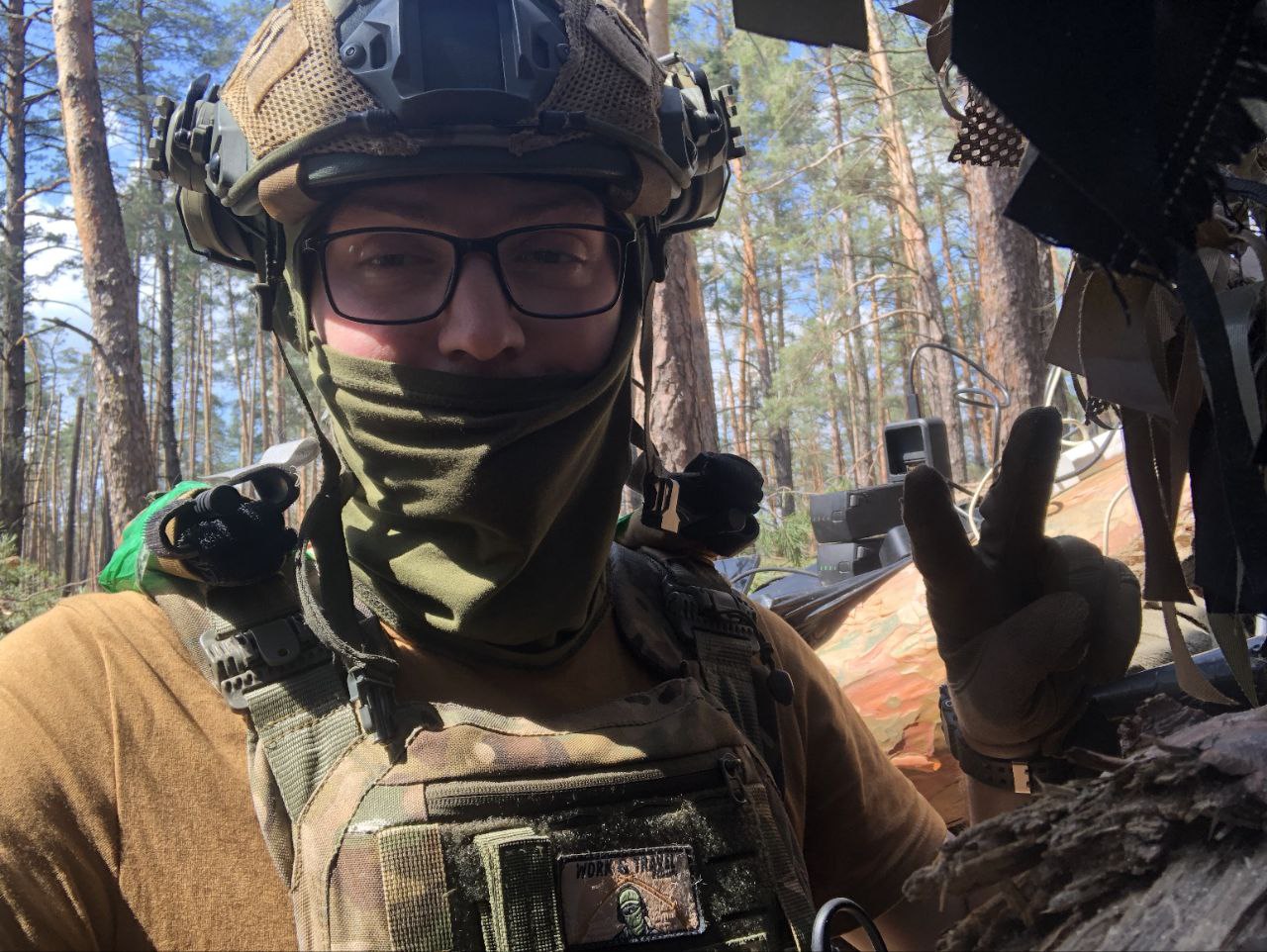
Ihor Musienko joined the 58th Brigade in the summer of 2022 (photo provided by Ihor Musienko)
Below is Ihor's direct quote.
Even before the full-scale war, I was learning to fly quadcopters. Because the question was not whether there would be a war, but when it would happen. I felt it was my duty to be in the army. I didn't want to serve in a rear position; I wanted to fly. But because I am insulin-dependent, they told me to stay at home.
When I was volunteering in Donbas, I met some military personnel. They helped me join the army, but gave me a choice: either go to headquarters or don't join the army at all. I went to headquarters, but six months later, I ended up in a self-propelled artillery combat unit as a pilot. After my first flight, I was very proud of myself—I had achieved what I had been striving for for so long.
Because of my love of flying, I was given the call sign Potter, except that Harry Potter flew on a broomstick, and I flew on drones. I also wear glasses, and I come from Konotop, a city that is popularly known as a witch town.
For about six months, I was involved in correction and reconnaissance for artillery. During a rotation in the Serebrianskyi Forest, I met some guys who flew FPV, and I got excited about it because it allowed me not only to observe but also to destroy enemy equipment and personnel.
I tried to promote the idea that we needed FPV, but it was difficult in the artillery. Until an order came from above to create new FPV units, nothing happened. My partner and I created a new unit, but then I was lucky enough to get into the unmanned systems battalion, where I am now.
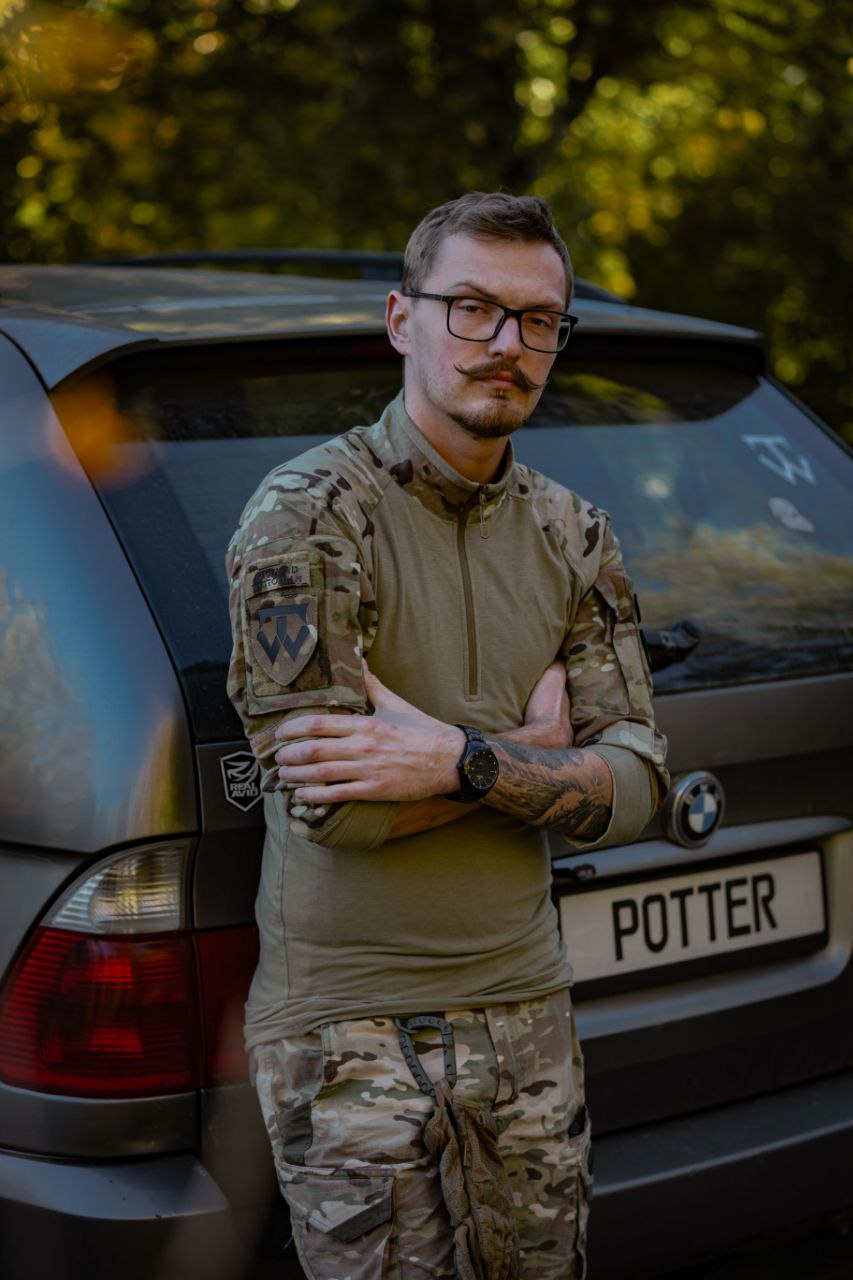
Potter passed through Kupiansk, Kreminna, Zolochiv, and Urozhaine. He is currently fighting in the Kharkiv region (photo provided by Ihor Musienko).
In general, I am a third-category sergeant-manager of headquarters personnel. That means I have a staff position, but with my experience, I can't resist the urge to go out to the front lines and do a little work.
We have a line that we hold. Battalions with various types of ground forces from our brigade and allies are working there. Our job is to do everything we can to keep them alive. That means defense: repelling assaults, destroying equipment on the front line, cutting off logistics to make the enemy's work more difficult.
To work in the field, I have to think everything through as much as possible: how to make sure that if I come under fire and my armor or backpack is damaged, my insulin will survive. I always carry three first aid kits with me — one on my armor, one in my backpack, and another spare with my drones. I also have syringe pens attached to my armor. In addition, I always have a Snickers or Mars bar in case my blood sugar drops and I need to raise it in an emergency.
The state provides insulin, and I can get it at the pharmacy. But I am rarely at home, so I buy enough for six months at a time. We have refrigerators, so there are no storage problems.
However, our technical support is not at the level we would like it to be. But we are finding investors and volunteers, and people are helping. It's good that we are being given state-owned FPVs, but they would have been relevant six months ago. Now we have to supplement them and rework the parts. All this costs money, and the parts have to be ordered from China or Europe, and then we have to wait for them. And time is the most expensive thing.
From a technical point of view, the most difficult part of my job is getting to and from the position, because many drones mine all approaches for several kilometers. And then there are fiber optic FPVs, which add to the problems (the Russians have started using fiber optic FPV drones because they cannot be detected or jammed with standard electronic warfare means – ed.). This is exactly what we missed in this race. And it causes us the most problems.
On the moral side, the indifference of most of our population is very distracting from focusing on important tasks. It throws us off track. Especially when you consider the latest news about the minute of silence on Khreshchatyk...
People, living their wonderful lives, cannot spare a minute to honor the soldiers who gave everything for them. You realize that someday you could be among them, and no one else will care. It's demoralizing.
The best way to honor Defenders Day is to support your military friend, relative, or acquaintance. Fill a need. Many volunteers collect treats for the holiday, but the military is not hungry; we don't have enough money. With the money spent on a kilogram of meat or lard, you can buy a vtx, which is a component of an FPV drone that we replace because the ones in government orders are weak.
I envy people who think that it will all end soon. This war will last a long time. Even if there were a pause, it would not benefit us, because Ukrainians like to relax. And that is a very bad scenario for us.
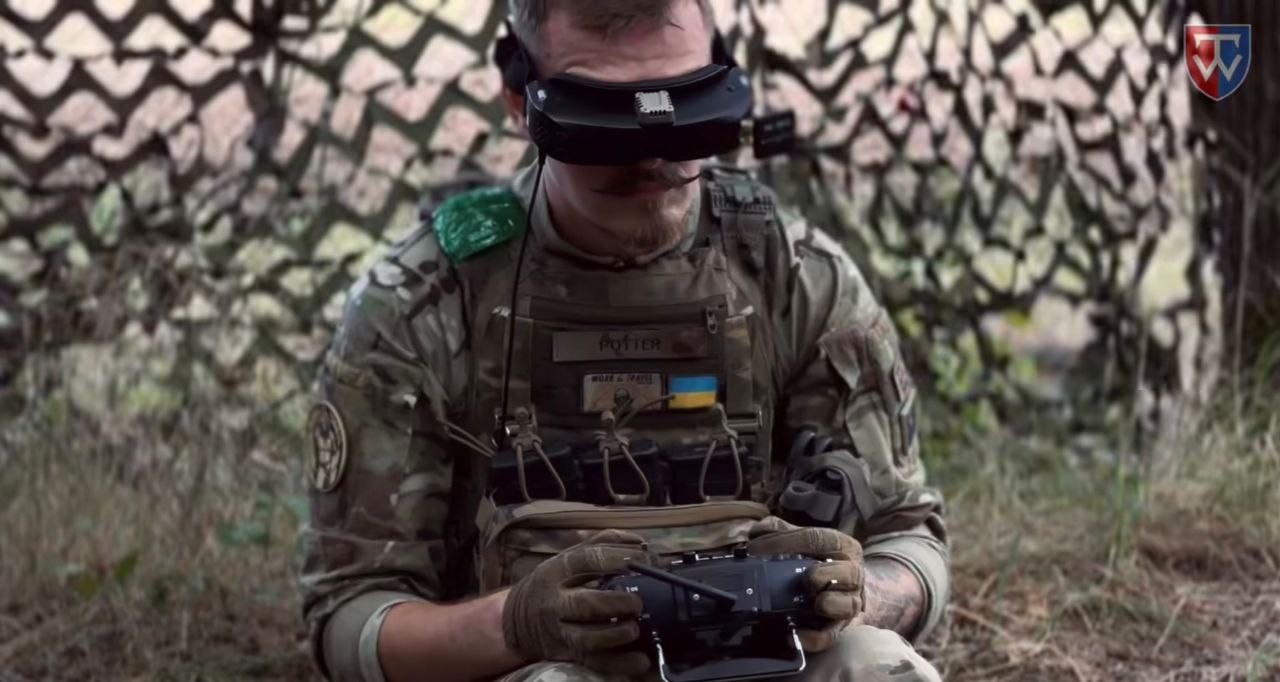 Ihor learned to fly quadcopters even before the full-scale war (photo provided by Ihor Musienko)
Ihor learned to fly quadcopters even before the full-scale war (photo provided by Ihor Musienko)
We must realize that war will come to everyone. I would advise civilians to prepare; otherwise, they will simply be sent to the infantry. Now they have a chance to learn and choose a safer military profession.
I really resonate with the words of Nil Khasevych (a Ukrainian artist who joined the Organization of Ukrainian Nationalists despite having a leg amputation, ed.): "I am a cripple, fighting at a time when many strong and healthy people in the world do not even believe that such a struggle is possible... I want the world to know that the liberation struggle continues, that Ukrainians are fighting." I would add: if I can fight, so can others.
Sport for rehabilitation. The story of a soldier who lost his arm but not his zest for life
Pavlo Savoshchenko, call sign Rosomakha, lost his arm in the war in May 2024 while defending a position in the Donetsk region. At that time, he had only been on the front line for 8 days. Pavlo is still undergoing rehabilitation and awaiting prosthetics.
His wife and 2 children help him regain his strength, as does sport – the soldier trains actively, participates in competitions organised by the Ukrainian Strongman Federation, runs, does squats with a barbell, rows on exercise machines, and engages in many other activities. In this year's Kyiv Unbreakable sporting event, Pavlo took first place in rowing, third place in air biking, and fourth place in kettlebell lifting.
"I didn't do sports before, I started after my injury because it's good for rehabilitation. Participating in sporting events is my moral relief because it keeps me from dwelling on my problems. Plus, there are also many veterans with various injuries and amputations, and we can communicate. I'm doing pretty well in my category," says Pavlo.
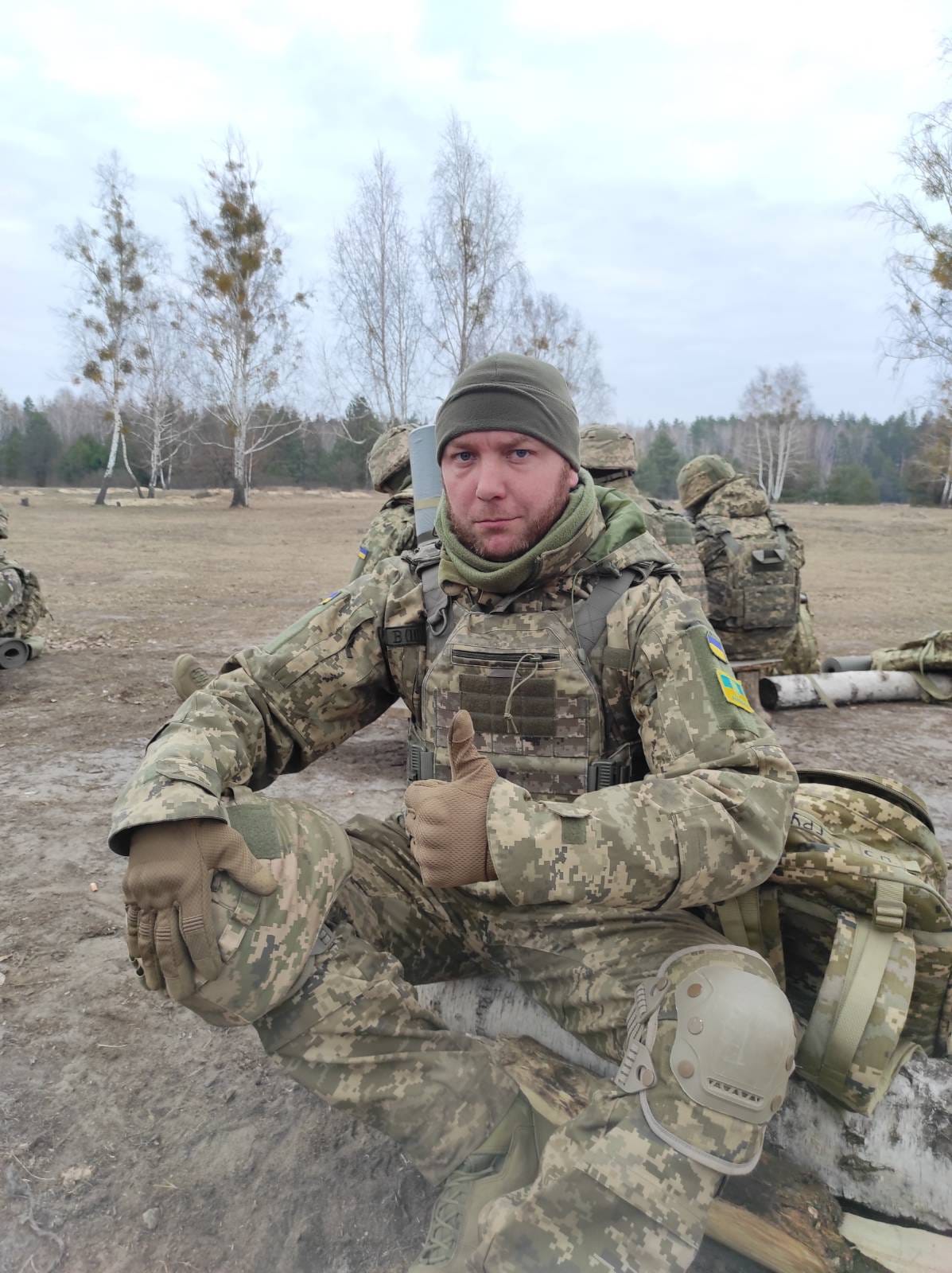 Pavlo Savoshchenko joined the 110th Brigade in the spring of 2024 (photo: facebook.com/nada.savosenko)
Pavlo Savoshchenko joined the 110th Brigade in the spring of 2024 (photo: facebook.com/nada.savosenko)
Below is Pavlo Savoshchenko's direct quote.
I was drafted on February 27, 2024, and after basic military training, I was assigned to the 110th Separate Mechanized Brigade. I became a grenadier. The guys said I looked like Wolverine (Rosomakha in Ukrainian - ed.), so they gave me that nickname. After two weeks of training with the brigade, I was sent on a combat mission near Ocheretyne, in the Pokrovsk direction.
On May 2, we went to the Donetsk region, and I was wounded on May 10. While repelling an assault, I was hit by a Russian machine gunner. My left arm was broken, and I had to apply a tourniquet for 10 hours. They couldn't pick us up for a long time. The evacuation was difficult, as the Russians were constantly shelling us. The result of the injury was the amputation of my arm.
The state provides prostheses, but I had to raise money for a titanium implant for osseointegration (volunteers raised UAH 1 million for Pavlo's implant – ed.). Since I have a high amputation, conventional prosthetics are not an option.
A new type of surgery has now appeared in Ukraine, where an implant is inserted into the bone, and then a prosthesis is installed. This method of prosthetics requires longer rehabilitation, and the prostheses and components themselves have to be ordered from abroad. When they arrive depends largely on customs. I think I will have my prosthesis in a couple of months.
Right now, rehabilitation is my top priority. My implant has taken root, and I already have a training prosthesis. I am getting used to its size. No matter what anyone says, even the most modern prosthesis cannot fully replace a hand; it is more of a tool, more for support. But I have my own working right hand.
Before my service, I worked as a builder, doing monolithic construction, then installing plumbing systems. In the future, I will be able to return to my old job—my employer is ready to take me back. Moreover, I will not be alone in the team—there are already veterans there. With my prosthesis, I will be able to perform many tasks.
I don't feel abandoned. My wife is always by my side. During rehabilitation, I communicate with guys who are just like me. We have many different cultural and sporting events.
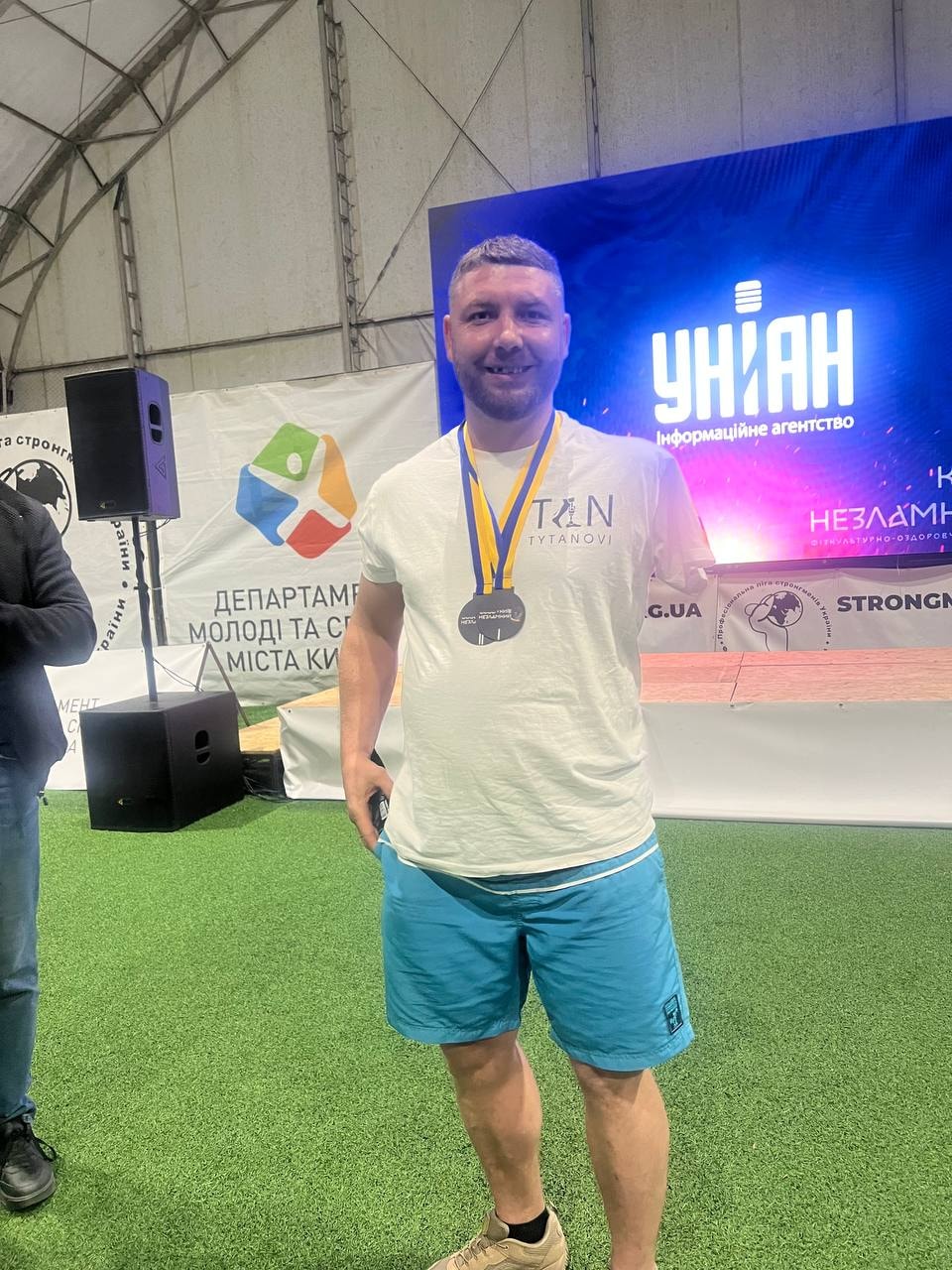 Pavlo participates in competitions organized by the Ukrainian Strongman Federation (photo: facebook.com/nada.savosenko)
Pavlo participates in competitions organized by the Ukrainian Strongman Federation (photo: facebook.com/nada.savosenko)
I received a departmental medal from the Ministry of Defense for sacrificing blood in the battles for Ukraine's freedom (it is awarded for injuries, – Ed.). I also have a medal for bravery in battle. These awards are small, but they are nice. I know many guys who have been fighting for a long time, but it is not them, the real heroes, who receive the awards, but the desk officers. In fact, the awards should be given to the soldiers in the trenches.
Right now, motivation is a very difficult issue in the army. People should join the army consciously, not under duress. Yes, it's scary there, but not as scary as it's made out to be. Everyone needs to understand that if you don't want to feed your own army, you'll have to feed someone else's. And then, as history shows, you'll have to go to a foreign country as part of a foreign army under the command of their butcher commanders.
I advise Ukrainians not to rely on anyone but themselves and our armed forces. And also to constantly support the army with donations for drones, vehicles, medicines, and other needs.
From the army to his own business. Story of a veteran who started a coffee business
Today, Artur Voituk is a successful co-owner of the veteran-owned business COMMANDO COFFEE CO in Khmelnytskyi, and before that, he devoted 13 years to military service.
He was a member of the MI-24 air crew during the peacekeeping operation in Congo, fought in the Luhansk region during the ATO, and in the Donetsk region during Russia's full-scale invasion. He performed tasks underwater, on land, and in the air. After being wounded near the Vuhlehirsk Thermal Power Plant, Artur was forced to leave the army.
"In civilian life, I often hear accusations: 'Why weren't you in the trenches? People need to understand that many injuries are invisible, but they make life very difficult. I was a diver: after 500 hours of diving, I now have lung problems. They will be with me for the rest of my life. But others don't realize this," says Artur.
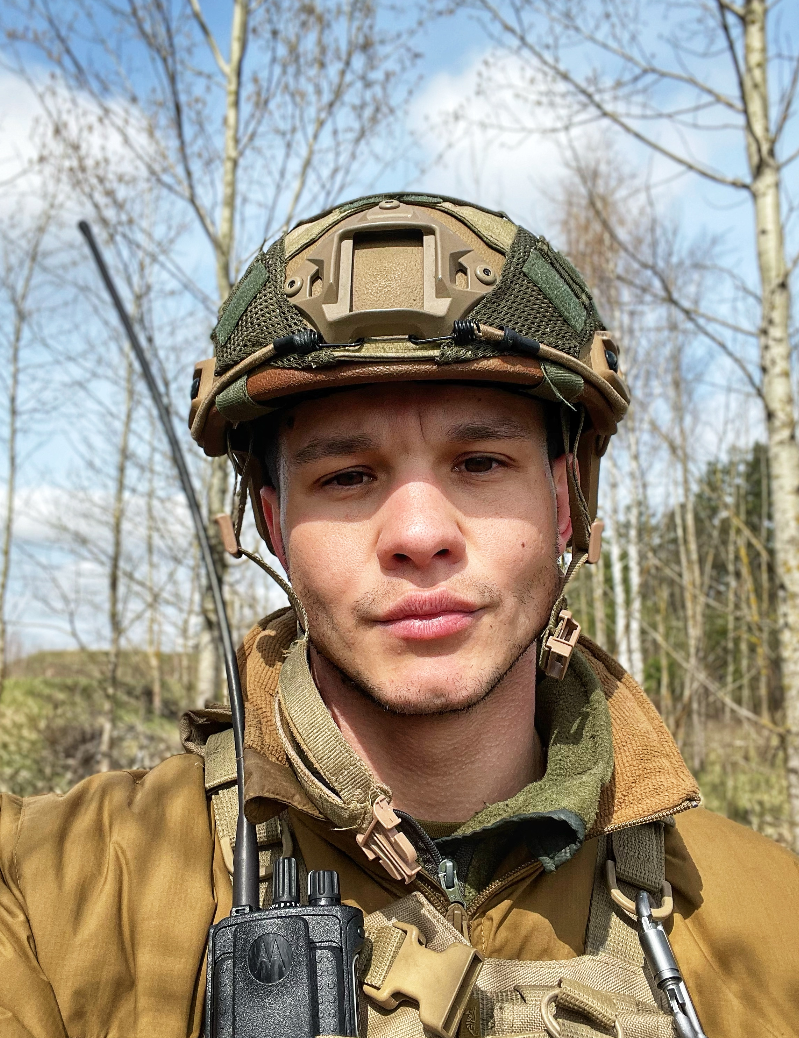
Artur Voituk devoted 13 years to military service (photo: provided by the Ministry of Veteran Affairs of Ukraine)
Below is Artur Voituk's direct quote.
On February 26, 2022, my contract was ending. I already had a letter of recommendation with all the signatures. The invasion changed everything. At that time, I was the acting commander of a sapper battalion, so I started recruiting people. After training and coordination, we went to the Donetsk region to replace the contract soldiers.
I participated in every combat mission of my battalion. When the Vuhlehirsk Thermal Power Plant was already under the control of the Russians, my fighters went on reconnaissance, and I stayed behind to cover them.
The Russians started shelling us. From the first attack, I was thrown back, and my knee was broken. From the second, I suffered a concussion. Even with these injuries, I got behind the wheel to drive the guys out (for saving his comrades, Artur was later awarded the Order of Courage, III degree – ed.). We drove about 10 kilometers to our checkpoint in Bakhmut, where we were sent to the hospital.
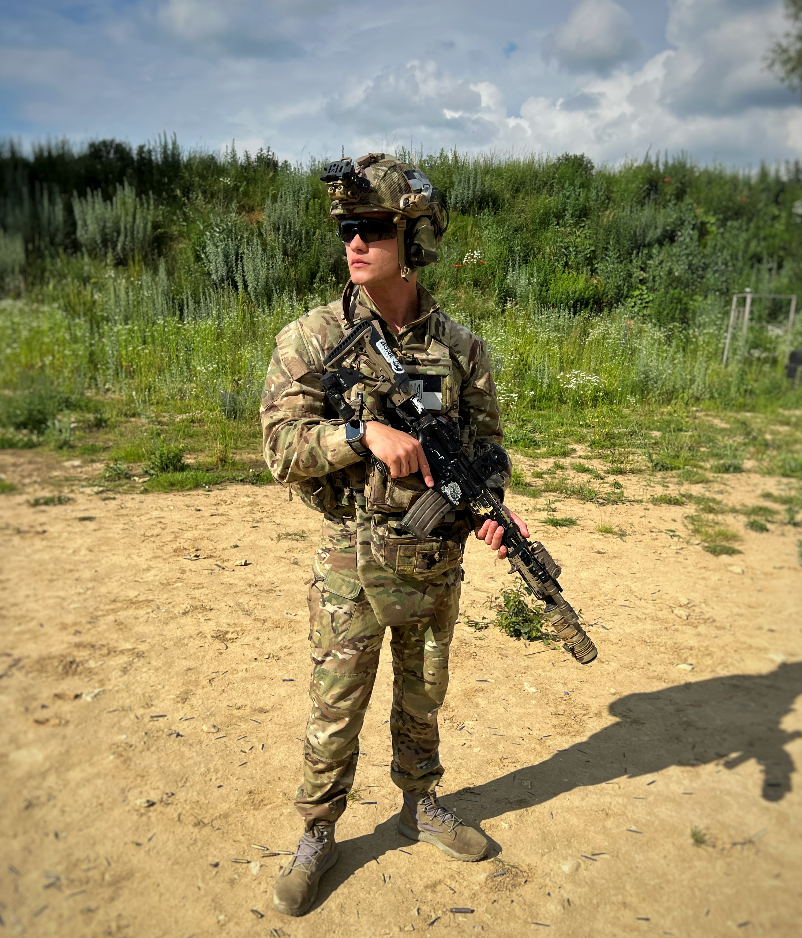
Artur served in Donetsk Oblast during the full-scale war (photo: Ministry of Veteran Affairs of Ukraine)
The shock wave to the back of my head impaired my vision and caused hearing problems. I continued to serve for some time, but due to my health condition, I was assigned to a disability group in mid-2023. On the day of my discharge, tears came to my eyes: I realized that I had given everything I could to the army.
During my service, I had no time to think about life as a veteran. After my discharge, I was faced with the feeling that no one needed me except my family. It took me about 6 months to adapt to civilian life. My family and my brothers in arms were my greatest support. Many of them continue to serve in my hometown of Khmelnytskyi, so we have the opportunity to see each other often.
I had waves of PTSD, but I try my best to control it. In 2015, in the Luhansk region, when I was still a very young lieutenant, I saw a lot...
It came back to me from time to time. I realized that I shouldn't dwell on what I had been through. I had to accept it and let it go. Because if I got nervous, it would only make things worse for myself and those around me. I worked through it. We only have today, and what happened in the past cannot be changed.
At first, I didn't know what to do in civilian life. When I was still serving with the Americans, I learned that their veterans had founded a coffee company after fighting in Afghanistan. And when I got this idea, I couldn't think about anything else. My brothers and I also founded a company.
I am currently in the process of opening a coffee shop — it will be the first veteran-owned coffee shop in our city. It will also have social significance: we will hold various events here with those who have returned from the front and those who continue to serve.
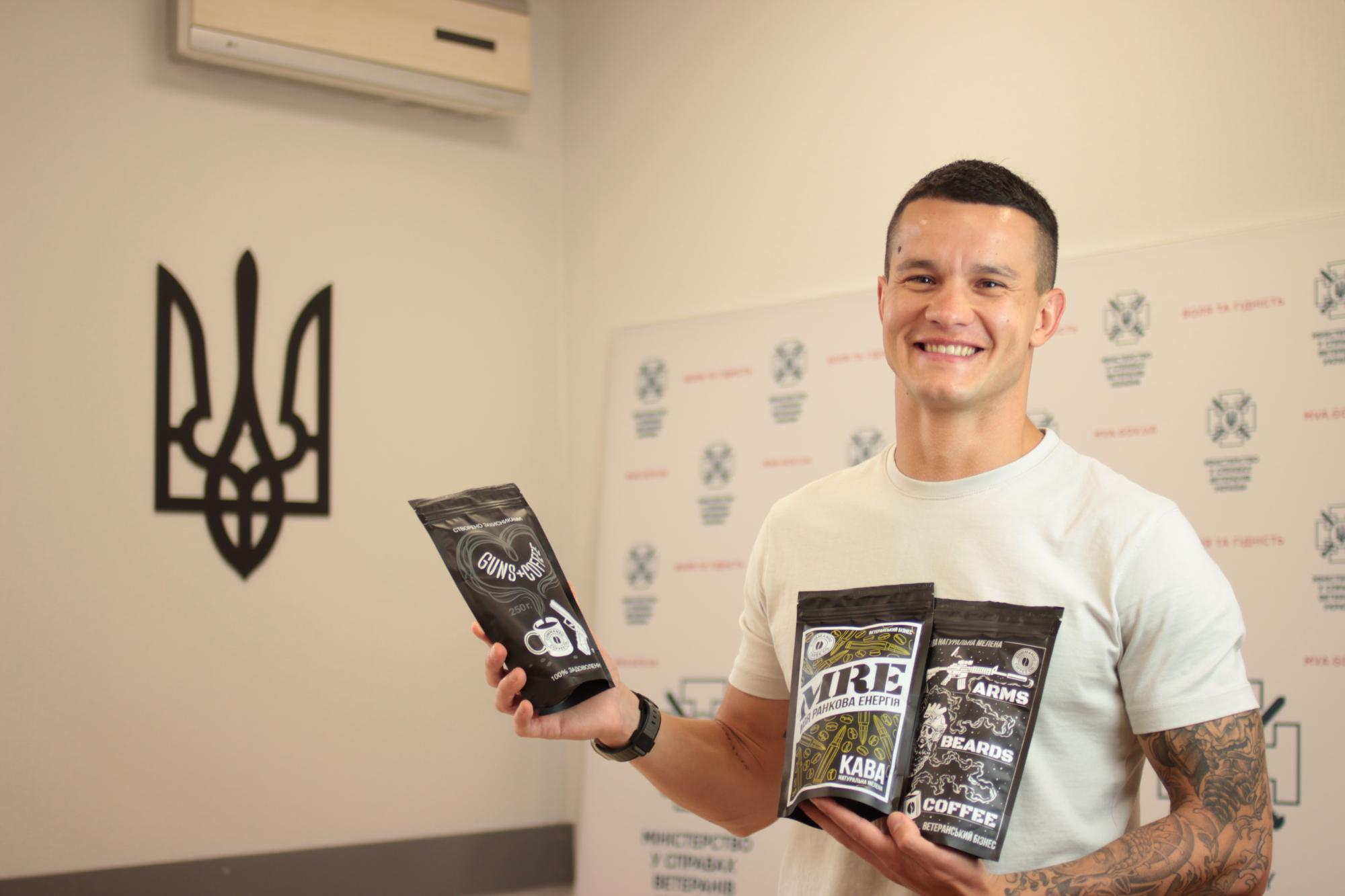 Artur and his comrades founded a coffee production company (photo: Ministry of Veteran Affairs of Ukraine)
Artur and his comrades founded a coffee production company (photo: Ministry of Veteran Affairs of Ukraine)
For veterans who are just beginning to adapt, I would advise them to find a goal. It doesn't matter whether it's long-term or not. When a person loses their goal and doesn't know what they want to do, they lose their purpose in life.
The main thing is to have a goal. It could be a desire to read 100 books in three months, try new sports, or go on a trip somewhere. In other words, you have to keep living and be grateful that you have the opportunity to do so.

